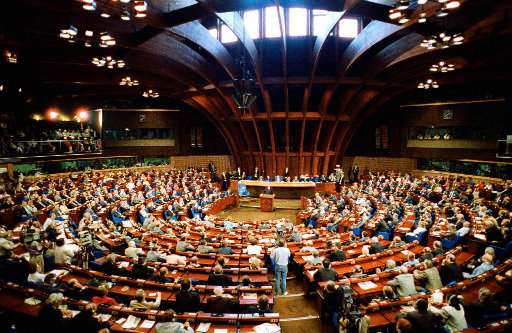STRASBOURG, January 25 – RAPSI. The Council of Europe’s anti-corruption group (GRECO) released a report on Friday issuing a list of recommendations aimed at assisting Poland in upping its game in the fight against corruption.
Noting that Poland had come a long way in terms of establishing sound legislative framework aimed at reducing corruption, GRECO added that there was room for improvement.
GRECO’s 16 recommendations fixated primarily on effective means of preventing corruption amongst members of parliament (MPs), judges, and prosecutors.
The recommendations geared toward MPs include, in brief:
* Greater transparency in the interactions between MPs and lobbyists or others looking to impact the legislative process;
* A clarification of certain problematic provisions of the parliamentary ethical code;
* The development of a working mechanism for declaring conflicts of interest;
* A broadening of the scope of MP asset-declaration requirements, to include the assets of spouses, dependents, and other close family members;
* An increase in the effectiveness of mechanisms that exist to monitor the compliance of MPs with the relevant ethical and professional requirements;
* The provision of an ethics counsellor to assist MPs with specific personal issues, and the establishment of periodic training courses to help all MPs stay in line.
The recommendations geared toward judges include, in brief:
* A clarification on the ethical code, expanding particularly upon such issues as conflict of interest and the acceptance of gifts;
* A broadening of the scope of asset-declaration requirements for judges, to include the assets of spouses, dependents, and other close family members;
* Increased scrutiny of the asset declarations of judges by the relevant governing bodies;
* The introduction of criminal sanctions for false statements by judges in asset declarations, and a strengthening of criminal sanctions for other violations of judicial ethics;
* The provision of personalized counselling and group training with special attention paid to asset declarations, the receipt of gifts, conflicts of interest, and other problem areas.
The recommendations geared toward prosecutors include:
* An enhancement and broad, public distribution of the prosecutorial code of ethics, with expanded coverage of issues such as conflicts of interest and the acceptance of gifts;
* A broadening of the scope of asset-declaration requirements for prosecutors, to include the assets of spouses, dependents, and other close family members;
* Improved mechanisms for ensuring the monitoring of prosecutorial ethics and asset declarations;
* The introduction of criminal sanctions for false statements by prosecutors in asset declarations, and initiatives to ensure that disciplinary actions will be taken against improper conduct before the tolling of the statute of limitations;
* The provision of personalized counselling and group training with special attention paid to asset declarations, the receipt of gifts, conflicts of interest, and other problem areas.
An assessment of their implementation will be carried out late next year.



